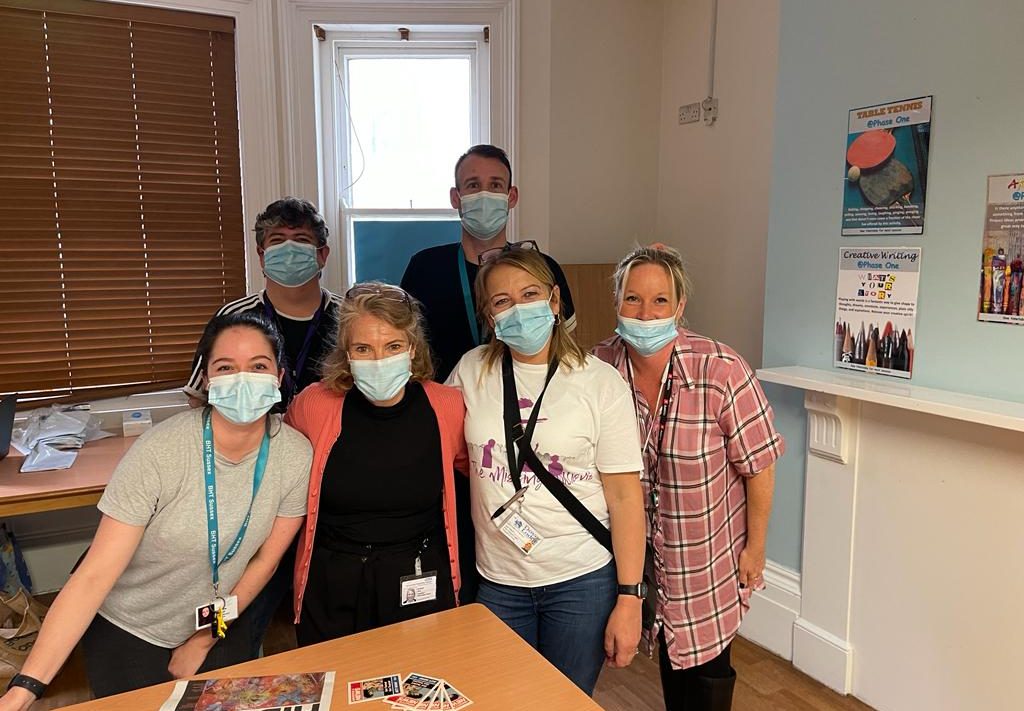
The Sussex Hepatology Network, based at Royal Sussex County Hospital, University Hospitals Sussex, has reached a testing target set by NHS England, as part of a national project helping eliminate hepatitis C as a major health threat by 2025.
Hepatitis C is preventable, treatable, and curable for most people. If left untreated, however, the infection over time can lead to scarring on the liver (cirrhosis), liver failure or cancer.
In a bid to create a snapshot of how close we are to eliminating the virus across the country, networks across the country were asked to test 400 people from high-risk groups over a six-week period.
The project also helped identify people unknowingly living with the virus to get a diagnosis and receive potentially life-saving treatment sooner.
Through this testing, 18 people across Sussex were found to be carrying the virus, who will now all be supported by the network to start on treatment.
People infected with hepatitis C can experience few or no obvious symptoms and can often live with the virus for many years without being diagnosed.
It spreads through activities that expose people to an infected person’s blood, such as sharing unsterilised needles, non-sterile tattooing, piercing, or cutting rituals.
The Sussex Hepatology Network focused on opportunistic testing within the drug and alcohol services, as 90% of patients with hepatitis C have typically experienced intravenous drug use in the past and therefore can be more susceptible to being infected.

Testing within these services was managed by national health and social care charity Change Grow Live (CGL) and carried out through ‘High Intensity Test and Treat’ events as well. They also utilised new and existing relationships with local hostels, recovery projects and other community locations.
Duncan Cresswell, Clinical Networks Manager said: “Research and innovation are now one of the key strategic themes for University Hospitals Sussex, towards achieving the vision of excellent care every time. I couldn’t be prouder of the way everyone has come together to provide accessible testing and treatment services for people who often face some of the worst healthcare inequalities in society and can find accessing these services incredibly difficult.”
Hélène Begg, CGL Services Manager – Brighton and Hove, said “Meeting the Sussex targets for this needs assessment project was no mean feat. However, this has been a perfect example of teams working together creatively and collaboratively to make this project a success.”
“We, the CGL team, are so proud to have been part of this national assessment and to play our part consistently in the identification and the long-term elimination of hepatitis C locally.”
Providing the finger prick test were nurses, as well as staff from the national charity Hepatitis C Trust and Change Grow Live, who tested as many people as possible across Brighton, Bognor, Chichester, Worthing, Eastbourne, and Hastings.
Zoe Yates, Peer Coordinator at the Hepatitis C Trust, helped engage with clients to stamp out any misconceptions around hepatitis C and encourage their participation in testing. She said: “It was great to be part of this project and witness the amazing input from our partners across the whole county. Thank you to you all, we could not have done this without your support.”
Duncan added: “We’re determined to achieve elimination of the virus in Sussex by 2025. If we’re going to reach this challenging goal, we need to work with partners across Sussex to engage, test and treat any undiagnosed patients. Assessment projects like this are a great step on our way to elimination and will help to guide the future direction of the programme.”
The network, set up in 2016, is responsible for delivering hepatitis C treatment across the whole county and is comprised of two NHS Trusts: University Hospitals Sussex NHS Foundation Trust), covering Brighton & Hove and West Sussex locations, and East Sussex Healthcare NHS Trust (ESHT).
The network will continue to work with drug and alcohol services and are planning to ‘micro-eliminate’ across new areas, including primary care, probation, and justice services.